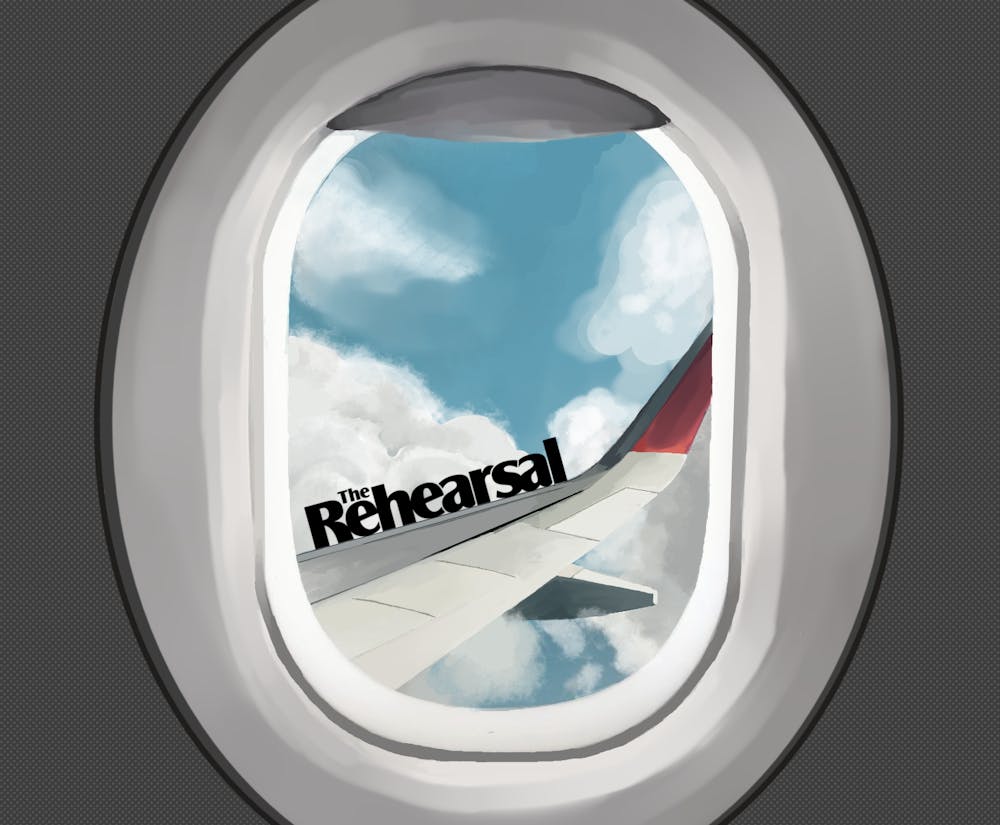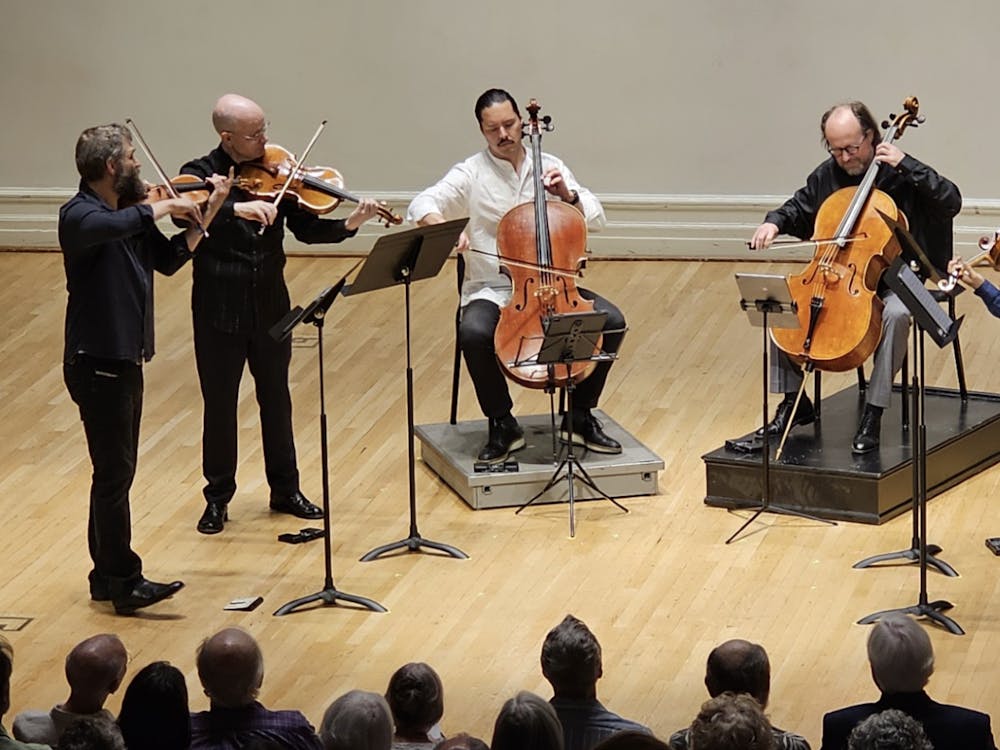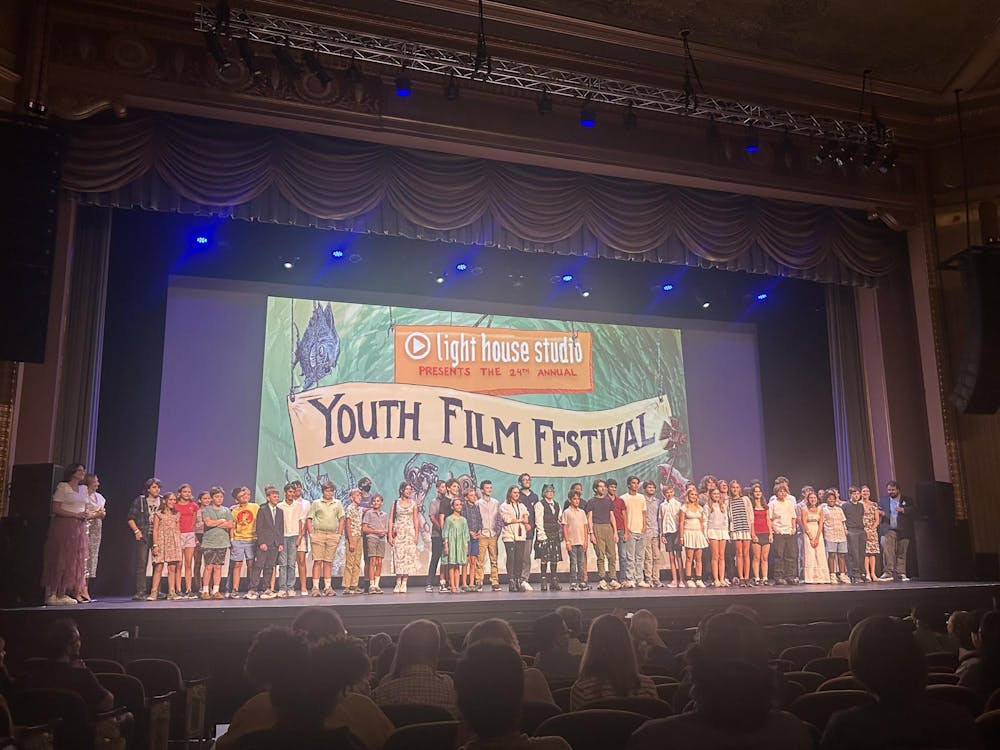The sixth and final episode of the second season of comedian Nathan Fielder’s “The Rehearsal” aired on HBO May 25. The satirical show documents Fielder as he creates full-sized recreations of places and situations in order to allow people to practice a real-life interaction before they have to face it in the real world. The show is unscripted allowing itself to fall into a docu-comedy genre in which Fielder – using a comedic persona – interacts with real people.
Season two follows Fielder as he aims to figure out what is the leading cause of plane crashes. The finale took Fielder’s vision a step further than viewers anticipated, leaving the viewer with a more existential view on Fielder’s unconventional yet grand path towards flight safety.
The first season — airing in 2022 — began with Fielder helping people overcome their fear of certain situations, such as revealing a secret to a close friend or confronting a family member. As the lines between what is real and what is pretend are blurred, viewers were left wondering how Fielder could recreate another equally uncertain and ethically puzzling season of this show.
Season two opened with Fielder studying crash logs of planes, looking to find a solution to the vast problem of what causes planes to crash. Among the ridiculousness of Fielder’s life-sized, physical recreation of the George Bush Intercontinental Airport and fantastical theories on aviation safety, at the heart of the show lies a core question — would promoting open communication between pilots lead to more trust in the cockpit?
In order to study where these miscommunications occur, Fielder creates various situations. Fielder mediates a fight between a young pilot and his girlfriend, and helps another young pilot navigate his non-existent love life. As the season ramps up, Fielder works his way towards pitching his hypothesis that training pilots on communication could change the field of aviation safety to the Congressional Subcommittee on Aviation by working with the former member of the National Transportation Safety Board, John Goglia.
Fielder’s comedic persona — an awkward character who fails to catch on to some very obvious social cues despite trying — is on display in this season. Fielder utilizes this persona creating comedic moments from unscripted interactions with others, drawing out the eccentricities in the everyday persona. However, similar to the first season in which it almost seems as though Fielder breaks this persona in moments of bizarre interactions, this season has some genuine moments of Fielder reflecting on his own communication skills. The last episode, however, shows the most raw look into Fielder’s struggle with mental health and communication in the show.
With so many viewers questioning how Fielder could possibly pitch his ideas to aviation experts, this episode instead pivots from presenting his ideas to testing his theory by piloting a real Boeing 737. Fielder dedicates two years of his life to learn how to operate this machinery, a feat that has not been done before by a comedian in this capacity. While Fielder’s journey to fly a plane full of actors certainly took up the majority of the episode’s action, it was Fielder’s struggle with diagnosing his anxiety that proved to be a more sincere journey in the midst of answering an objective question.
Fielder runs into the issue of filling out the Federal Aviation Administration form in which pilots must list all medical conditions in order to be evaluated on if they are fit to fly. Fielder hesitates over checking the box of whether he has anxiety or not, later deciding to go to a psychologist and get an fMRI to get a diagnosis. Though the results are never revealed, the moment is an honest moment for Fielder as he waffles between finding a diagnosis and ignoring these concerns and continuing to fly.
Fielder completes the two hour flight carrying around 200 actors on board, with the episode ending with Fielder deleting a voicemail containing the results of his fMRI. Fielder, in his last line, declares that only the fittest people are allowed to fly planes that big and therefore, due to the fact that he has done such a feat, he must be okay.
There is a feeling of accomplishment for the audience when Fielder successfully pilots the plane for the duration of the two hour flight, including landings and takeoffs. However, this triumphant end leaves the viewer considering issues of mental health within pilot spaces.
Diverting from the previous season’s overt ridiculousness, this season has a real hypothesis that Fielder puts everything into testing. While a solid answer does not come from the finale nor does Fielder ever go in front of Congress to propose his hypothesis, the finale’s twist reveal of Fielder’s two years spent learning to fly instead leaves the viewer wondering if these issues are symptomatic of the human condition.
Ending on the most spectacular and detailed rehearsal Fielder has ever pulled off during “The Rehearsal” leaves an audience asking, what is next for Fielder? Is this the furthest he can go or will Fielder’s future endeavors go a step further — if that is possible — in rehearsing life?







